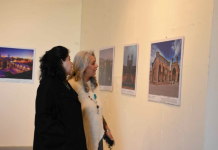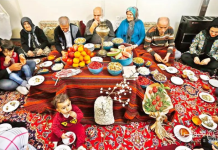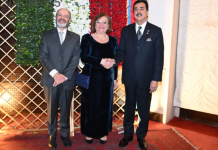In the world of coffee, there are beverages, and then there are legends. While Europe has perfected the art of the espresso shot and the café crème, the true soul of coffee—its ancient heart and spiritual home—beats in the highlands of Ethiopia. This isn’t just a story about a bean; it’s an invitation to experience a 500-year-old ceremony, a taste of history, and the very essence of community in every cup.
The Cradle of Coffee: Where Legend and Life Intertwine
The story begins not in a laboratory, but in a pasture. According to legend, an Abyssinian goat herder named Kaldi discovered his flock dancing with unusual energy after eating the red berries of a certain shrub. This serendipitous discovery of the coffee cherry set in motion a global phenomenon.
But for Ethiopians, coffee is far more than a historical footnote. It is the fabric of daily life. As anthropologist Éloi Ficquet notes, coffee evolved from a drink reserved for Muslims to a powerful force uniting Ethiopia’s diverse communities. Today, it is an omnipresent symbol of conviviality, served on every street corner, from humble pavement stools to luxury hotel lobbies, always fostering connection and conversation.
The Ceremony: A Ritual of Unparalleled Elegance and Meaning
To simply “drink coffee” in Ethiopia is to miss the point entirely. The Ethiopian coffee ceremony is a multi-sensory theatre, a ritual of grace, welcome, and spiritual significance.
Imagine a quiet afternoon disrupted by the fragrant smoke of home-roasted coffee beans, mingled with the purifying scent of burning incense. Fresh herbs and flowers are scattered as a sign of welcome. The mistress of the house, dressed in elegant traditional clothes, performs her art with deliberate, graceful movements.
The process is a captivating spectacle:
- The Welcome: Guests are invited to waft the smoke from the freshly roasted beans towards them, awakening the senses.
- The Brew: The beans are ground in a mortar and boiled in a traditional djebena terracotta pot. In Ethiopia’s high altitudes, water boils at a perfect 91°C, preserving the coffee’s delicate aromas.
- The Service: The rich, black brew is poured from a height into small, handleless cups. The service is performed three times, each with a profound name: abol (the first), tona (the second), and baraka (the blessing).
This third cup, baraka, is the culmination. It represents a flow of spiritual blessing, a moment where poetic words are spoken, strengthening the bonds of brotherhood and friendship. It’s a ritual born from Sufi Muslim mysticism, where the very utensils are considered vectors of spiritual power.
Beyond the Ritual: A Taste Profile Forged by Terroir
What does this centuries-old reverence translate to in your cup? For the European connoisseur, Ethiopian coffee offers an unparalleled taste adventure.
Unlike single-origin coffees from other regions, Ethiopia is a treasure trove of heirloom varieties, many still unknown to science. Grown in ideal conditions—high altitude, perfect climate, and rich soil—these beans produce a cup that is often described as:
- Exquisitely Complex: Expect vibrant notes of bergamot and jasmine, reminiscent of a fine Earl Grey tea.
- Fruit-Forward: A symphony of blueberry, strawberry, and citrus that is naturally occurring, never infused.
- Smooth and Bright: A wine-like acidity and a clean, lingering finish that is utterly captivating.
From the famed Yirgacheffe (floral and tea-like) to the powerful Sidamo (berry-rich) and the complex Harrar (wild and winey), exploring Ethiopian coffees is a journey through a living, breathing botanical garden.
A Modern Indulgence with an Ancient Soul
For the European consumer, choosing Ethiopian coffee is a conscious decision. It is a move away from homogenized blends and towards a product with a profound narrative. It’s a connection to:
- Authenticity: This is coffee in its most original, unadulterated form.
- Sustainability: The majority of Ethiopian coffee is grown by smallholder farmers using traditional, often organic, methods.
- Cultural Richness: Each bag of beans carries the story of the ceremony, the legend, and the community that cherishes it.
Bring the Ritual Home
You don’t need a djebena to appreciate the magic. Simply seek out single-origin, ethically sourced Ethiopian beans from your local specialty roaster. As you grind the beans, inhale the aroma—that’s the scent of history. As you brew, take a moment to appreciate the journey. And when you sip, experience the baraka—the blessing—of the world’s most extraordinary coffee.
Ethiopian Coffee: More than a drink. It’s the origin of connection.
BY: Nadeem Faisal Baiga








